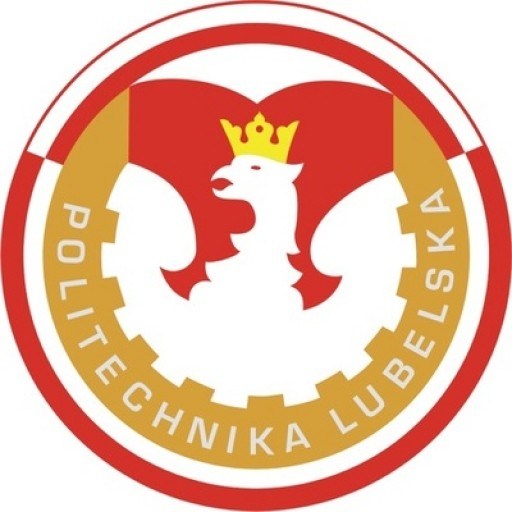Photos of university / #tu.muenchen
Transportation Systems: A Comprehensive Master's Program at the Technical University of Munich
The Master's program in Transportation Systems at the Technical University of Munich (TUM) offers students an in-depth education in the planning, optimization, and management of transportation networks and systems. Designed to meet the demands of modern transportation challenges, the program integrates engineering, economic, environmental, and societal perspectives to prepare graduates for a wide range of careers in the transportation sector. Throughout the coursework, students will explore key topics such as transportation infrastructure, traffic flow theory, intelligent transport systems, sustainable mobility solutions, logistics, and urban planning. The program emphasizes a multidisciplinary approach, encouraging innovative thinking and practical problem-solving skills to address complex transportation issues faced by urban and regional areas worldwide. Students have access to state-of-the-art laboratories, research centers, and industry collaborations, providing valuable hands-on experience and networking opportunities. The curriculum combines theoretical foundations with practical applications, including project work, case studies, and internships. Graduates will be equipped to analyze, develop, and implement effective transportation solutions that improve mobility, safety, and environmental sustainability. The program is suitable for recent graduates in engineering, planning, or related fields who aspire to advance their knowledge and contribute to the development of intelligent, efficient, and eco-friendly transportation systems. With a strong focus on innovation and research, the TUM Transportation Systems Master's program fosters the skills necessary to shape the future of mobility on a global scale, making it an ideal choice for ambitious students seeking a dynamic and impactful career path.
1. Economic, Social and Environmental Aspects of the Transportation System
2. Natural Science Essentials
3. Legal and Decision Making Aspects
4. Fundamentals of Transportation Theory
5. Spatial Planning
6. Design of Transportation Systems
7. Basics of Traffic Control and Management
8. Soft-Skills
9. Actual Topics
10.1 Design of transportation networks
10.2 Intelligent Transportation Systems and Transportation Modelling and Simulation
10.3 Transportation Demand Management
11. Project Seminar (in semester 3)
12. Internship (in semester 4)
13. Master’s thesis (in semester 4)
- CV with details of previous study (which institutions of higher education attended, examinations passed, etc.),
- proof of university degree,
- certified translation of the above document (if not in English),
- TOEFL results if university course was not conducted in English,
- a passport-size photo,
- passport or identity card.
The financing options for the Transportation Systems program at the Technical University of Munich (TUM) are designed to support both domestic and international students throughout their studies. As a reputable German university, TUM benefits from a variety of funding opportunities, including government grants, scholarships, and financial aid schemes. Students can apply for scholarships offered by the DAAD (German Academic Exchange Service), which are available to outstanding international students interested in engineering and transportation-related fields. Additionally, some students may qualify for TUM-specific scholarships that recognize academic excellence, leadership skills, or research contributions.
Tuition fees at TUM for most master's programs, including Transportation Systems, are relatively low compared to universities in other countries, which alleviates the financial burden on students. For non-EU international students, semester fees cover administrative costs, public transportation passes, and other student services, which amount to a modest sum annually. These fees are partly subsidized by public funds, and further financial support is available for students who demonstrate financial need or exceptional merit.
Students are encouraged to seek part-time employment opportunities both within the university and in the city of Munich, where the cost of living is manageable compared to other major European cities. TUM’s Career Service provides resources and job listings that can help students find suitable work to support their studies financially. Furthermore, students can explore loan options through German banks and international lenders, although these should be considered carefully due to repayment obligations after graduation.
In recent years, TUM has also promoted the development of industry partnerships and sponsored research projects, which occasionally provide funding or scholarships to students involved in relevant research activities related to transportation systems. Grants and stipends are sometimes available for students engaged in internships or cooperative education programs that relate directly to their field of study.
Overall, the combination of low tuition fees, scholarship opportunities, government support schemes, part-time work options, and industry sponsorships create a multifaceted financial support system for students enrolled in the Transportation Systems program at TUM. This approach aims to minimize financial barriers and enable students to focus on their academic and professional development in transportation engineering and systems.
The Master's programme in Transportation Systems at the Technical University of Munich (TUM) is designed to prepare students for a wide range of careers in the field of transportation engineering and planning. This interdisciplinary programme combines principles from civil engineering, mechanical engineering, electrical engineering, urban planning, and environmental science to address the complex challenges faced by modern transportation networks. Students acquire in-depth knowledge of transportation infrastructure, vehicle technology, traffic management, and sustainable mobility solutions.
The curriculum covers core topics such as traffic flow theory, public transportation systems, intelligent transport systems (ITS), and logistics. Special emphasis is placed on the integration of innovative technologies, including automation, electrification, and digitalization, to develop smarter and more efficient transportation systems. Students learn to model, analyze, and optimize transportation networks, ensuring safer and more environmentally friendly mobility options. The programme also offers practical experience through laboratories, projects, and collaborations with industry partners, providing students with real-world insights and problem-solving skills.
Graduates of the Transportation Systems Master's programme are equipped with the knowledge and competencies needed to address current and future transportation challenges. They are prepared for careers in transportation planning and consulting, infrastructure management, research and development, and policymaking in public transportation agencies, private enterprises, or international organizations. The programme fosters an international and interdisciplinary learning environment, encouraging students to work on global mobility solutions. Overall, it aims to contribute to the development of sustainable, efficient, and innovative transportation systems that meet societal needs and support economic growth.









